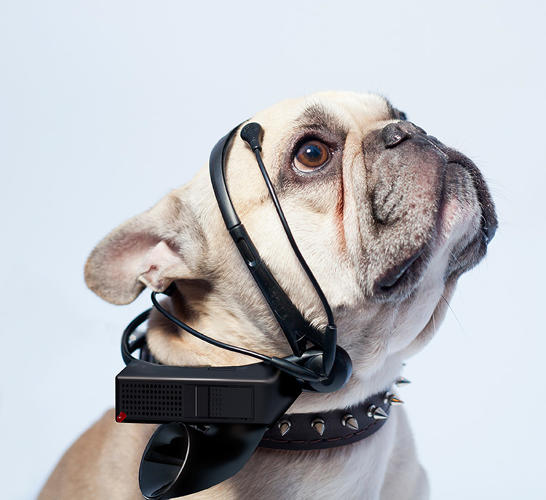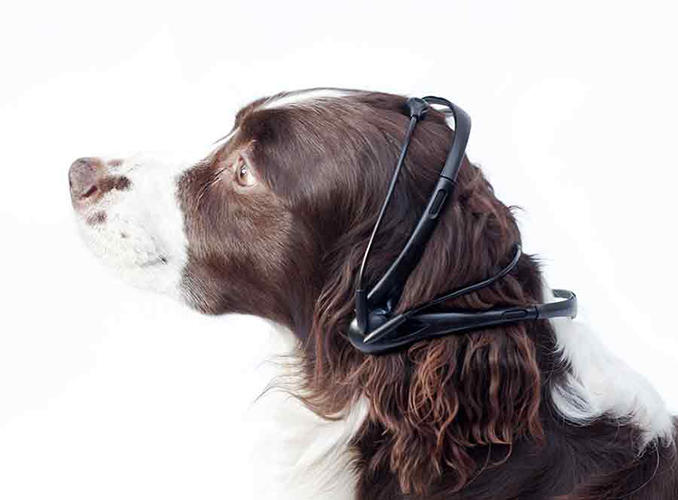This Headset Translates Dog Speech into Words!
Jan 03, 2014 20:36

The expansion of wearable tech for pets has allowed us to track our dogs' running, sleeping, and eating patterns. But Tomas Mazzetti took it a step further by strapping an off-the-shelf EEG machine to his mother's Australian terrier.
Mazzetti and his team of fellow creatives at the Nordic Society for Invention and Discovery were inspired by the observations, so they launched No More Woof, a headset that translates dogs' thoughts into speech.
The Nordic Society for Invention and Discovery is a collaboration between ad agency Studio Total and Swedish retailer MiCasa, and they've come up with a number of other quirky products--a rocking chair that charges your iPad, a weather forecasting lamp, and a levitating carpet for small pets.
No More Woof is their latest work in progress, and the team just launched an Indiegogo campaign to raise funding for research.

Mazzetti, co-founder of Studio Total, has been able to determine three baseline dog emotions to translate into speech: sleepiness, agitation, and curiosity. “When the dog is sleepy, we translate to ‘I’m tired.’ And if they are really agitated, we can translate to ‘I’m excited!’” Mazzetti said. “And the most active brainwave is when the dog sees a human face and tries to recognize that face. Then the brain is working overtime.”
As for the motivation behind this particular project, Mazzetti says: “We always try to do things we would like if we were 10 years old. That's the key to our business.”
Mazzetti and his team will next try to work on deciphering hunger pangs as processed by a dog's brain. NSID will also find cheaper EEG machines, after which they can fine-tune the software. So far, they've done tests on roughly 20 dogs; of which they found short-haired pets were able to communicate with the EEG machine better.
If NSID manages to receive more funding, the researchers hope to have something on the market by March or April of next year.
Dog-speech devices could also go both ways someday, Mazzetti suggests. “It would also be really cool to have something on a human head that could translate into dog language,” Mazzetti said.







































































